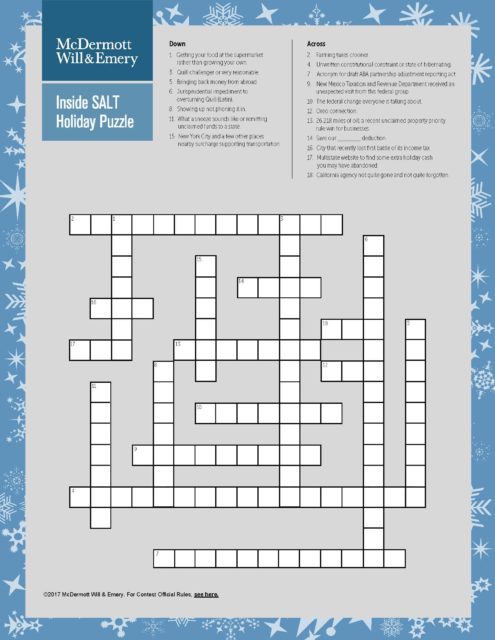On Tuesday, April 17, 2018, at 10:00 am (EST) the United States Supreme Court will hear oral arguments in South Dakota v. Wayfair, Inc., a state tax case poised to reconsider the dormant Commerce Clause physical presence standard upheld by the Court on stare decisis grounds in the historic mail-order case Quill Corp. v. North Dakota (U.S. 1992), which was litigated by McDermott Will & Emery. The Court is expected to consider whether a 2016 South Dakota law imposing sales and use tax collection obligations on online retailers–and other sellers–with no physical presence in the state is permissible given, among other things, the advances in technology and e-commerce since Quill was decided.
For those that would like to attend the South Dakota v. Wayfair, Inc. oral argument as a member of the public (as opposed to as a member of the US Supreme Court Bar), the Supreme Court Police give out 100–150 numbered tickets between 7:00 am–7:30 am. The doors to the building open at 8:00 am. Once inside, the line re-forms in the hallway by the Gallery steps and at 9:00 am, the public is allowed upstairs to the Gallery. The argument will begin at 10:00 am. Given the popularity of this case, it is anticipated that only around 50 seats will be available to the general public for this argument—so plan to arrive early to ensure you have the best chance to make it in!
After the oral argument concludes, we invite you to join COST, Bloomberg Tax, McDermott Will & Emery, and lawyers involved in many respects of the litigation for a moderated roundtable discussion at the DC office of McDermott Will & Emery, which is just minutes away from the Supreme Court. The roundtable discussion will begin at 12:00 pm (EST) and explore the issues before the Court and opinions regarding the many possible outcomes from the case.
We expect a full house and space will be limited, so please register your interest now so that we can plan to accommodate as many as possible. This case promises to revolutionize the world of SALT, no matter the outcome.
read more



 Subscribe
Subscribe





